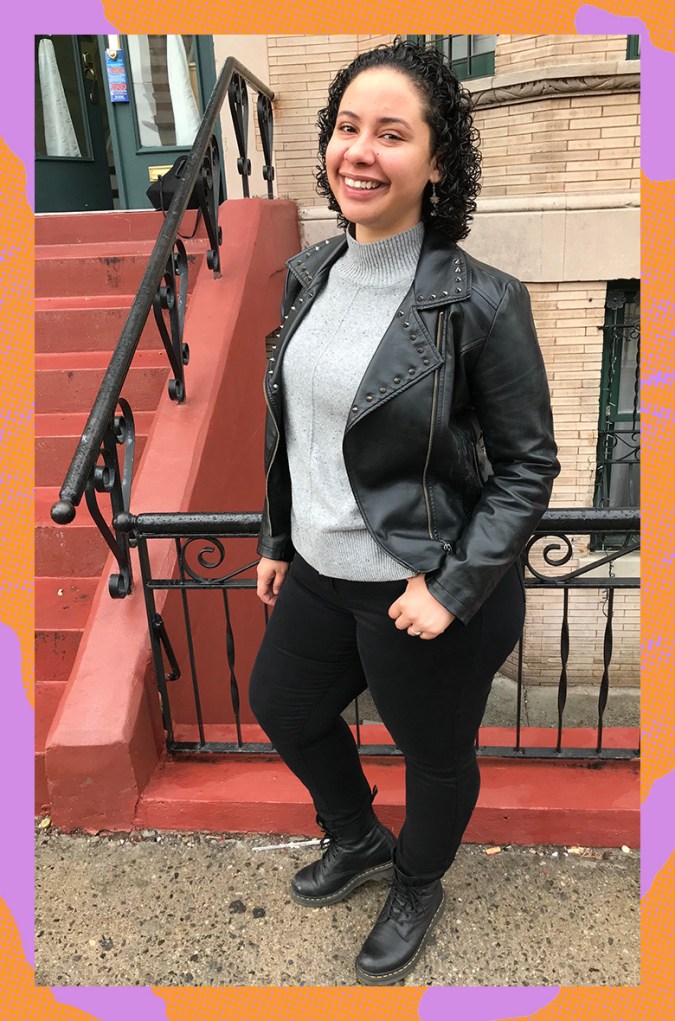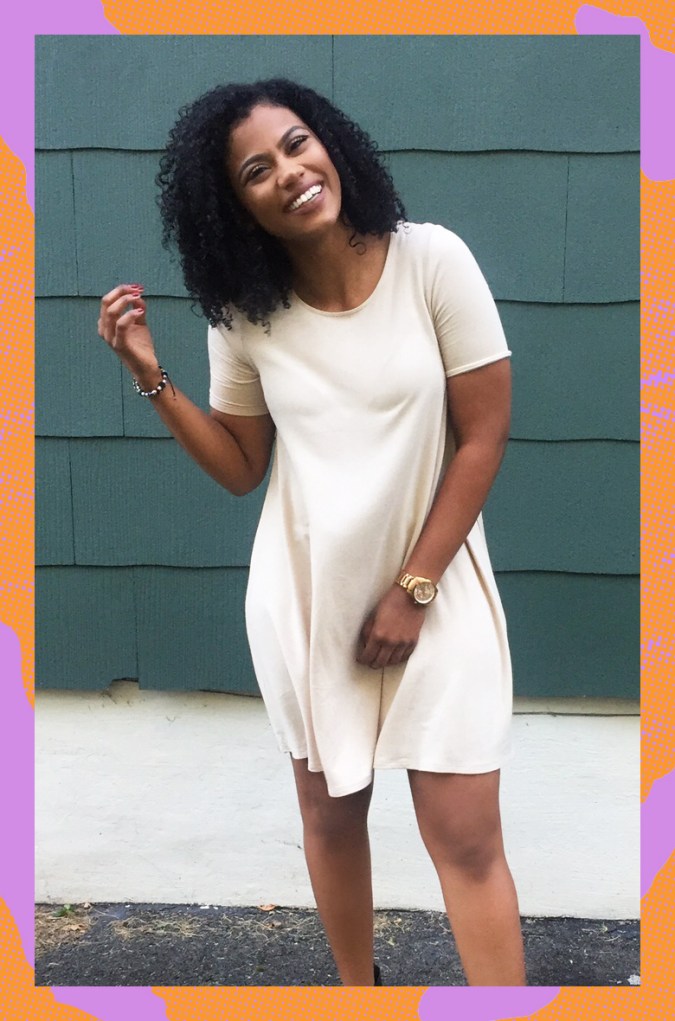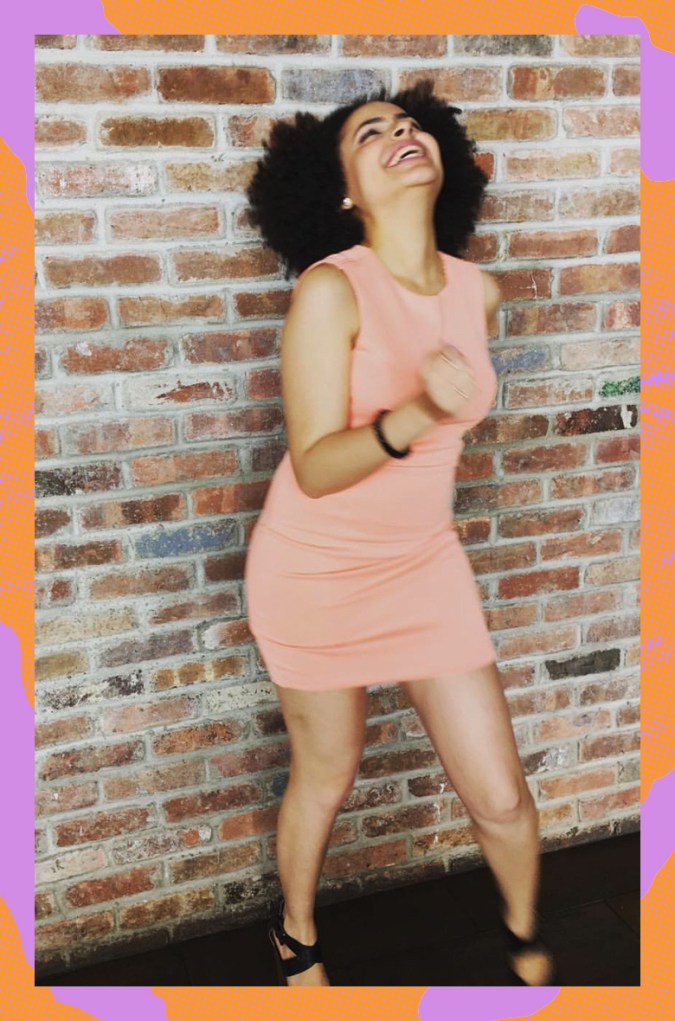It seems as though conversations regarding Afro-Latinidad are now louder than ever. These much-needed discussions have slowly raised the curtain on an identity that magazines and movie screens have intentionally whitewashed. Recently, artists Cardi B and Amara La Negra have unapologetically centered their Afro-Latinidad – confusing many still unaware that Blackness and Latinidad are not mutually exclusive. These women – and countless other Afro-Latinos doing the hard work of telling our stories – are defining what it means to live in our skin.
In late January, during an appearance on The Breakfast Club, Amara La Negra shut down DJ Envy and Charlamagne Tha God’s dismissal of her experiences fighting colorism as she navigates the entertainment world as an Afro-sporting, dark-skinned Latina. This incident took place shortly after the airing of an episode of Love & Hip Hop: Miami, where one of Amara’s cast mates implored her to soften her look by changing her hair and going for a more Beyoncé vibe.
In an interview with Zendaya for CR Fashion Book in January, Cardi B discussed her frustration with those who try to diminish her blackness because she didn’t outright say she identifies as Black. “I don’t got to tell you that I’m Black. I expect you to know it,” she said. “When my father taught me about Caribbean countries, he told me that these Europeans took over our lands. That’s why we all speak different languages. I expect people to understand that just because we’re not African-American, we are still Black. It’s still in our culture. Just like everybody else, we came over here the same fucking way. I hate when people try to take my roots from me.”
But while small battles are being won on the mainstream scene as the Afro-Latinx identity becomes less invisible, for some, the fight against anti-blackness continues at home. A history of colonization and the conditioning of Latinx minds to believe “white” means better has left a poison that creates tension between those ignorant or unaccepting of Afro-Latinx history and those conscious of it. So that means as some of us celebrate our African roots, our families tell us to seek light-skinned partners to “mejorar la raza” or they deny their connections to the African Diaspora. It makes for a frustrating experience, and unfortunately this line of thinking isn’t easy to eliminate.
We wanted to learn more about what it’s like to embrace your Blackness even when your family doesn’t. So we spoke to three women who remain proud of their Afro-Latinidad as they’re met with disapproval at home. Check out what they had to say below.

Amanda Correa
“Why are you supporting [Black Lives Matter]? You’re not Black. What is that about?” Comments like these are the norm when Amanda Correa and her mother discuss Blackness.
Correa didn’t always identify as Afro-Latina, but going away to college at Brandeis University changed everything. While at the school, she took a few sociology classes that served as the catalyst to identify as Afro-Boricua. The classes moved her to learn more about herself and think more about her connection to Africa.
When she shared with her dad that she was on a journey to learn more about their history as a people, he surprisingly revealed that he identifies as a Black man. His grandmother was actually an enslaved Nigerian woman named Othelia. “I don’t know why he was never open about his Blackness, even though in his public life he saw himself that way,” Amanda tells me.
Her dad has passively accepted her identity. “My dad is definitely quietly on my side, quietly in my corner,” she says. “For some reason, he doesn’t really talk about it, but we’re on the same page.”
“It makes me feel sad for them, because there’s a part of them that’s not whole.”
But she can’t say the same thing about her mom. For Amanda accepting her Blackness also meant becoming more political and fighting for the visibility and rights of people of color. She became very involved in the Black Lives Matter movement, much to the dismay of her mom.
She’s also received unsavory comments from other family members. “If I’m interested in someone who’s African-American or someone who’s not necessarily lighter, there are little remarks and comments [like,] ‘I’m not judging. You know I love you anyway.’ So those microaggressions really reflect where they’re at,” Amanda says.
For Amanda, her family’s views don’t deter how she lives her life and she’s especially proud about identifying as Afro-Boricua. Though she’s tried to educate her mom and other family members about their African history, Amanda isn’t interested in fighting battles she can’t win.
“It makes me feel sad for them, because there’s a part of them that’s not whole. There’s a part of them that’s hurting that wants to be white so bad,” she says. “But for me I’m not interested in trying to educate people who aren’t going to respond. I’m not interested in forcing them to have a realization. All I can do is respond with love and let them know: ‘Listen, this is who I am and this is what I believe in and so you gotta accept it.'”

Denise Roa Peña
Growing up, Denise Roa Peña’s cousins singled her out for her darker skin tone. They’d tell her that she wasn’t Dominican, but Black – making it seem like the two identities were contradicting. “They would always make me feel like I wasn’t Latina,” she says.
She didn’t begin identifying as Afro-Latina, however, until she took a human development class at Binghamton University. It marked the first time she heard the term. “Accepting that I’m Afro-Latina is just me accepting that I’m Black and it’s OK,” she adds. “I’m not less of a Latina. It’s just a part of my ethnicity. It’s what I am.”
Though college helped her learn a term that encompassed her identities, she has recognized her Blackness since her teenage years. At 13, she decided to stop relaxing her hair. It took her some time to leave the heat behind, but taking ownership of her natural hair meant moving closer to accepting herself and her blackness.
“If you even say anything that challenges what they believe, they automatically think you’re disrespecting them.”
Her mom, however, prefers her with straight hair and doesn’t keep it a secret. “Arregla tu pelo,” her mom would often tell her. Denise has had to ask her mom to reconsider her language. “I’m like, ‘Mom, you shouldn’t tell me to fix my hair. It’s OK to tell me I would look nice with straight hair, but don’t tell me to fix it, because straightening it doesn’t mean I’m fixing it. It just means I’m trying a different style,'” she says
Indirectly educating her mom – for example, by critiquing her choice of words – is Denise’s way of challenging her anti-blackness. Whenever her mom discusses their noisy next door neighbor in their Brooklyn apartment building, she brings in race. This leads Denise to say, “Why does that matter? She might be a bad person, because she’s insensitive to you at night, but her being Black has nothing to do with that situation.”
And like many Latina moms from countries with a history of Blanqueamiento, Denise’s mother has suggested she marry a “white guy with blue eyes.” When Denise told her mami she liked a darker-skinned person, her mom told her that she wouldn’t be able to communicate with this potential partner because of the language barrier. But Denise questioned why this wouldn’t be a concern for her mother had she been in a relationship with a white man.
While Denise presses her mom on certain comments, others she just ignores to avoid offending her and other family members with the same beliefs. “If you even say anything that challenges what they believe, they automatically think you’re disrespecting them,” Denise says. “I don’t deal with it a lot. I just ignore it. I just accept it as who they are and accept that they think that way.”
But for Denise, honoring her Black identity continues being fulfilling. “I realized that now I love myself more than I used to because I accept that part of me.”

Leiry Santos
Out of four siblings, Leiry Santos is the only one with 4A type hair. She previously used relaxers to straighten her curls, which left her wondering why her mane didn’t resemble what she saw on television.
She didn’t begin to gain appreciation for her hair until she took a Latin American and Caribbean Studies course at the University at Albany. “[It] was my first exposure of me learning why I look the way I look, why my hair texture is the way it is, and why I’m like moved by certain rhythms in music,” Leiry says. “I think it really does have to do with where I come from and of course, my ancestors are of African descent.” Carolina Contreras – aka Miss Rizos – further helped her that natural hair is beautiful.
The combination of her new self awareness as an Afro-Dominicana and reading about someone else’s journey inspired Leiry to chop all her hair off in 2014 – making her father, who loved Leiry’s straight hair, furious. “He said a lot of derogatory things in Spanish. He said ‘cabeza de coco,’ ‘tu parece una loca,’ a lot of offensive things. Of course, he said it while he was laughing, but I know that he really felt bothered by the decision that I made,” she says.
“I tell him, ‘Dad, it’s thanks to you I have this hair. I’m so happy that I have this hair texture.'”
Leiry’s father associates her pajón with being uneducated. Four years have passed since she chopped off her locks, but he continues to beg that she straighten her hair. Leiry takes his views in stride, often sending him pictures of her ‘fro to show him how beautiful his daughter looks. Her dad responds by sending her images of herself with straight hair.
But Leiry doesn’t blame her dad for his lack of consciousness. She once read an article stating that relatives shouldn’t be bashed for the institutional racism they’ve been taught their entire lives. “It’s so difficult to break that record, so for me I really just laugh with my dad. I have a very strong connection with him so I do try to speak to him about it. I tell him, ‘Dad, it’s thanks to you I have this hair. I’m so happy that I have this hair texture,’” Leiry says.
She also sees traces of internalized racism in her aunt, who often praises her for her light skin. “She looks at me and she says, ‘You are so lucky to have come out with that skin, so luscious and so fine, tu eres tan fina,’” she adds. Leiry tells her aunt that she too is beautiful, attempting to sever the connection her aunt makes between lighter skin and beauty.
The anti-black comments she hears from her relatives are often hurtful, but she’s learned the appropriate time to argue back. “There’s certain battles that they’re already so set on their ideas, that I know that it will cause an issue,” she says. Leiry’s seen her father stay quiet for an entire night after an argument. “It affects him more than it helps him. He really gets into his own where he shuts down completely and I don’t want to see that again,” she says.
But Leiry continues to truly embrace her whole self no matter how much her hair upsets her dad. “I’ve been really spending my time decolonizing and while I am doing that,” she says, “the way I decolonize is by embracing my blackness because I was taught that I was not.”




